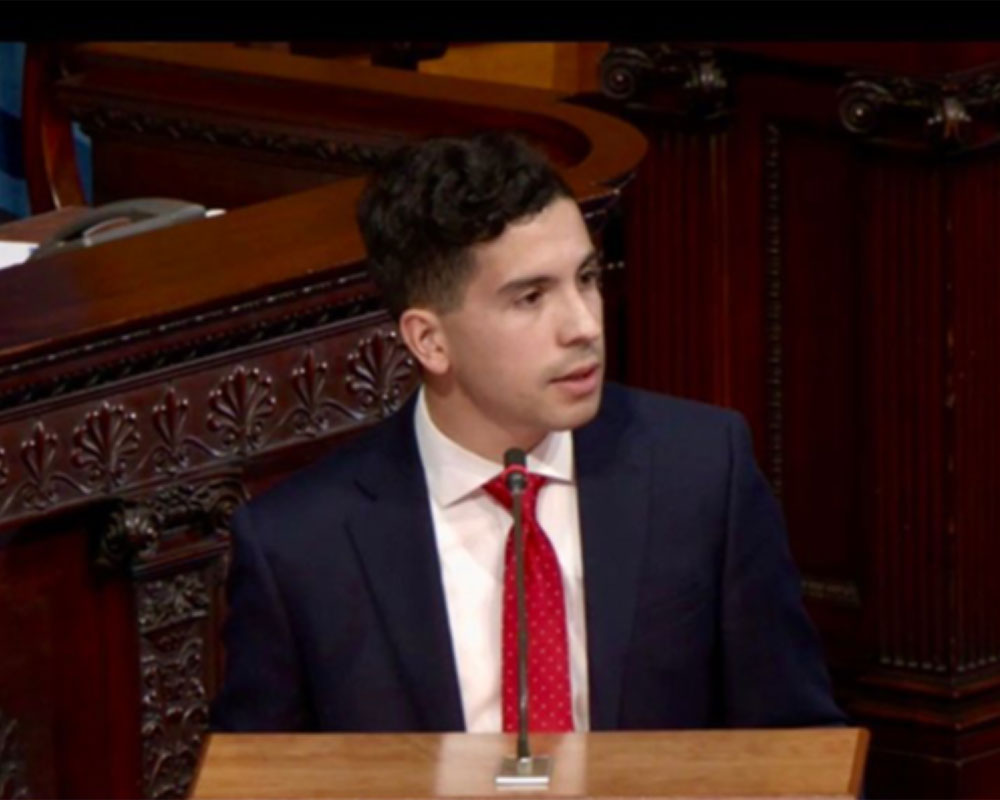A special legislative commission, co-chaired by Rep. Andy X. Vargas, recommends some fees for paroled prisoners should be eliminated and the state should offer tax credits as an incentive for businesses to hire ex-offenders as part of a broader strategy to eliminate racial inequities.
The Special Commission on Structural Racism in the Massachusetts Parole Process recently produced its final report as part of a broader reform of policing in the wake of George Floyd’s murder in Minneapolis.
“This commission was fortunate to have excellent expertise and participation from members. The report reflects the discussion, testimony, lived experience and peer-reviewed research examined. Across all of our systems, we can find opportunities to root out structural racism, including parole,” Vargas said. He added, it was an honor to chair this commission, but it is his hope the work “produces a more just parole process.”
Vargas and Sen. Jamie Eldridge, an Acton Democrat, co-chaired the 13-member commission that included five legislators and a variety of criminal justice experts, including one member of the Massachusetts Parole Board.
The 16 recommendations laid out in the 38-page report were unanimously agreed to by the members of the commission, with the exception of Parole Board member Colette Santa, who did not vote on the final report because of her active status on the board.
According to the report, 6,470 jailed individuals were eligible to seek parole in 2020, and 3,625 individuals appeared before the Parole Board, while 19% waived their hearings.
While the commission found that Black and Latino individuals are overrepresented in the criminal justice system, the group did not find similar disparities in rates of parole denials, though it said it lacked sufficient data to examine how long it takes people of different races to be released once they receive a positive parole vote.
The commission recommended identifying a way to phase out or eliminate the $80 monthly supervision fee that parolees must pay, which members of the commission said can have a disproportionate impact on people of color. The report states that the Parole Board has requested this recommendation to be implemented as a part of the fiscal year 2023 budget process, citing “no evidence that the fees have any positive effect towards reducing recidivism.”
“In addition to creating financial obstacles, these fees create logistical concerns that slow down the process for release,” the report said. “Upon release, parolees must concern themselves with finding stable housing, finding and maintaining legitimate employment, obtaining reliable transportation to attend meetings at their parole office, and more.”
The commission also recommended eliminating the $25 fee charged by the Registry of Motor Vehicles for a license and suggested the registry, the Department of Correction and sheriffs develop a process to make sure all incarcerated individuals have a valid ID upon release.
To provide for a more stable reentry to society, the commission recommended the creation of a tax incentive program to match the federal Work Opportunity Tax credit available to employers who hire ex-offenders, as well as more funding for transitional housing.
Violations of the no-drugs-or-alcohol rule for parolees were documented as the most common technical parole violation in 2020, accounting for 46 percent of all violations. To address that, the commission said at least a $1 million in additional funds should be appropriated to support beds in sober housing programs for at least 500 parolees.
Other recommendation included the expansion of the parole board from seven members to nine with the requirement that at least three members have at least five years of experience in fields of psychiatry, psychology, social work or the treatment of substance use disorder.
The group also said at least one member of the enlarged board should be a formerly incarcerated resident who has gone through the parole process.

